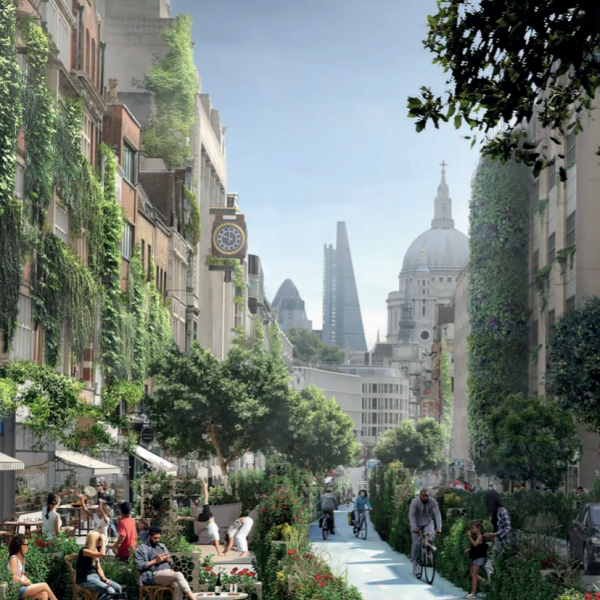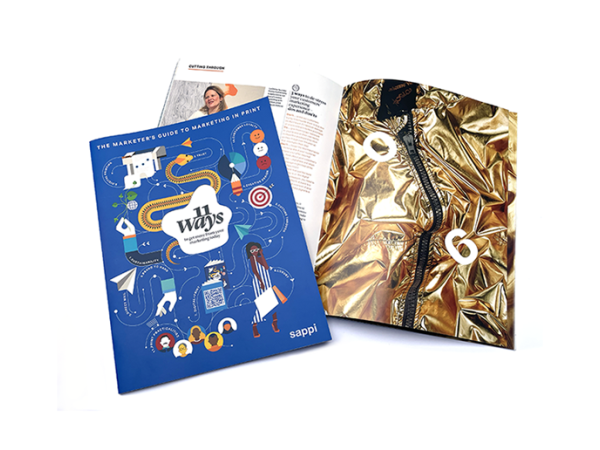Seize The Moment - The Green Economy
Covid-19 has heightened people’s awareness of the environment and the damage being done to it. If anything good is to come out of this crisis then it should be a permanent change to our sustainability values and a new green economy

Among the many stark images of life under lockdown, perhaps those that made the most impact were the ones of deserted cities. Normally thronging with people and traffic, famous streets such as Las Ramblas in Barcelona, the ChampsÉlysées in Paris, and Fifth Avenue in New York were deserted, the roads empty. While lives and economies have undoutedly suffered, plunging the vast majority of the world into crisis, one of the few bright spots of the past six months has been the effect the pandemic has had on the environment.
With no air, road, sea or train travel, and businesses ground to a halt, carbon emissions were immediately cut, and scientists took the opportunity to assess the environmental change and give a glimpse of what the world could be like without emissions. “This is a giant, global environmental experiment that has been done in a very controlled way,” said Sally Ng, an atmospheric scientist at Georgia Tech in the US.
“We suddenly turned the knob off very drastically and now we’re very slowly turning it back on.”
Time for change
What the scientists found very quickly was that less emissions resulted in a sharp drop in air pollution. According to NASA, levels of nitrogen dioxide across eastern and central China were 10-30% lower than usual, while levels in northern Italy, fell by around 40%. In the UK, a report by Sia Partners estimates that the UK’s carbon emissions fell by 36% in the first four weeks of the lockdown compared to 2018 (the most recent official carbon emissions data collected). There was a 90% fall in carbon emissions from the aviation sector, a 60% fall from passenger vehicles and a 30% decline from Britain’s energy system*. Figures such as these, taken with an increased awareness of the environment and our responsibility towards it, has galvanised the British public into wanting permanent changes to the economy and environmental issues to be at the heart of the recovery.
A recent report found that almost eight in ten said the measures taken by the government to help the economic recovery from Covid-19 should be deigned to help reach net zero emissions and, as the lockdown eases, 93% want government and employers to encourage lifestyle changes to cut emissions2 . “There is a clear view that time is running out on certain issues and therefore the urgency is there,” says Steven Stoffer, Group Vice President Development of Smurfit Kappa. “Covid is echoing a certain mood in people’s minds that’s different from the past, making people think differently.”
“As an industry, we’ve never been so committed to sustainability as we are now”
The green recovery
Many experts around the world are saying that we are currently at a turning point, that this is the time for politicians and businesses to seize the moment to build a greener, more sustainable future. Recently, over 200 businesses including BT, IKEA, Kingfisher, Sky and Tesco signed a letter to the UK Prime Minister Boris Johnson, urging for an ambitious environmental and low carbon agenda to be put at the heart of the upcoming economic recovery3 .
There also seems to be a willingness on the political level to use the momentum and accelerate sustainability initiatives, such as The European Green Deal – the European Commission’s roadmap of policies for their climate agenda, which aims to make the EU carbon-neutral by 2050. “The EU policy makers have said that we are in the middle of an awareness moment, that yes, we can make change happen on climate,” says Claire Couet, Public Affairs & Communications Director of The Confederation of European Paper Industries (Cepi). “If we can all stay at home for three months, not use our cars or fly, then we can also do that if we want to make a real difference to the environment.”
The circular champions
Of course, paper will have a large part to play in this new green economy. Its ability to be recycled and reused several times over makes it one of the world’s most sustainable materials, with the majority of developed countries having an established infrastructure in place to ensure high recycling rates. “As an industry, we have never been so committed to sustainability as we are now,” says Claire Couet. “We are the champions in recycling, but we are also champions in how we use the residues from trees to produce the raw materials for paper. So we are circular in the way we use trees, but also circular in the way we use chemicals and water.” Every day it seems another global company is swapping their less sustainable packaging material for paper or cardboard.
The latest is Coca-Cola, which plans to launch a cardboard ‘CanCollar’ later this year. Swapping the plastic collar for cardboard will eliminate the use of over 11,000 tonnes of virgin plastic every year across Western Europe. It’s a small but significant step. If businesses and governments can make permanent changes then the planet and its people may just have a chance at long-term survival.
*Sia Partners, 2020, 2 Climate Assembly UK, 2020, 3 Aldersgate Group, 2020
This article has been published in the September 2020 14 issue of The Page published by Two Sides UK



